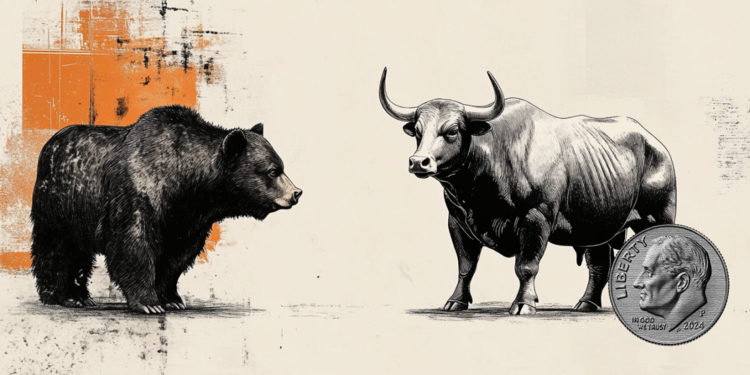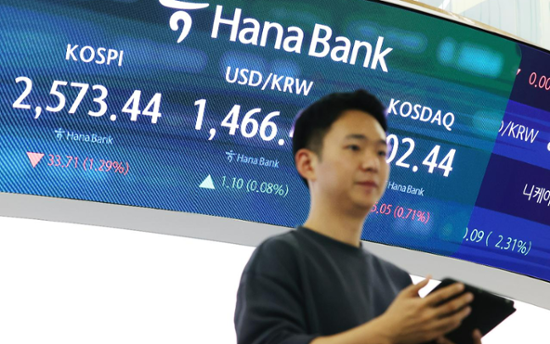If there’s a scorekeeper in the race to create a billion-dollar, one-person business, Henry Shi is undoubtedly a contender. Shi, cofounder and now board member of Super.com, a money-saving app, created the “Top 10 Lean AI Native Companies Leaderboard” in March to track the progress of lean startups racing to achieve a $1 billion valuation in one-person business or those with very small teams. He found inspiration to build it in a friend’s answer to the question, “What do investors care most about?”
“The one thing investors care about is beating other investors on a leaderboard,” his friend said.
It may have been a lighthearted comment, but the leaderboard Shi created now includes 44 companies. His criteria for inclusion: They must have $5 million in annual recurring revenue, be younger than five years old, demonstrate relatively fast growth, and have fewer than 30 employees. Shi sees the leaderboard as a powerful tool. “My goal is really: ‘How do you build much leaner, more efficient companies?’” Shi says.
Topping the current list, based on revenue, is Telegram, the Dubai-based messaging startup. It currently generates $1 billion annually, employing 30 team members. And, with a $30 billion valuation, it’s got a valuation of $1 billion per employee, the highest on the list. Midjourney, an AI design startup, is second, with $500 million in annual revenue and 40 employees. With a $10 billion valuation, its valuation per employee is the second highest: $250 million.
Shi is among a growing group of entrepreneurs, investors and experts paying close attention to the race to create billion-dollar businesses with ultra-lean or single person teams. The presence of the leaderboard has galvanized many founders, who are now approaching Shi with requests to include their startup. “I think it’s a challenge, and a lot of founders are driven people, so they want to challenge themselves,” he says. “And now, reaching $1 billion actually might be possible,” he adds, though he isn’t sure it will end up being by a one-person startup, but perhaps one that includes “10, or 15, or 20” people.
Henry Shi, a cofounder of Super.com, began keeping track of the AI-native startups that have a shot at becoming a billion-dollar, one-person business, based on valuation.
Super.com
Among those wagering that a solopreneur will reach $1 billion is Sam Altman, CEO of OpenAI. He shared in a 2024 interview with Alex Ohanian, Reddit’s cofounder, that he and his CEO friends had created a betting pool to predict the first year a solopreneur business will reach a $1 billion valuation through the use of AI agents.
The sprint to create a billion-dollar, one-person business is the subject of a free, community event panel series I’m moderating as a volunteer for the New York Public Library (NYPL) (Part 2 takes place today, November 17, 2025, at noon EST and is open to the public). I’ve been curious about the likelihood we would see a billion-dollar, one-person business since I began covering million-dollar, one-person businesses for Forbes in 2013 and discussed the possibility in my 2018 book The Million-Dollar, One-Person Business, in which venture capitalist Eric Scott, at the time a partner in PayPal co-founder Max Levchin’s venture capital fund SciFi VC, shared that he and his colleagues had been discussing how much longer it would be until a one-person firm got acquired for $1 billion.
Now more people have joined the conversation. When the million-dollar, one-person business trend began to take shape in significant numbers, founders had to rely on digital apps and tools, along with contractors, to extend the capabilities of what one person could accomplish. Now, they can turn to AI, which is far more powerful, utilizing tools such as ChatGPT, publicly introduced in November 2022.
Meanwhile, we’ve already seen an exponential leap in the number of seven-figure solo businesses. There were 117,060 solopreneurs and partnerships that achieved $1 million in revenue in 2023, according to the U.S. Census Bureau’s Nonemployer Statistics. The number more than doubled from 2021 to 2022 for the first time, from 57,222 to 116,803. For comparison, there were 31,780 of these businesses breaking $1 million in 2012.
That said, million-dollar, one-person businesses are still outliers, akin to Olympic athletes of the solopreneur world. For context, there are currently 30,427,808 nonemployer businesses in the U.S., with an average revenue of $57,611. That is less than the U.S. average wage of $67,920, according to the U.S. Bureau of Labor Statistics. Billion-dollar, one-person businesses would out-unicorn today’s unicorns in their rarity.
But with the number of high-impact, very lean businesses growing at a clip, many influential people are keeping a close eye on the race to create a billion-dollar, one-person business. There was even a panel on the “One-Person Enterprise” at Davos in March, with Benjamine Liu, CEO and cofounder of Formation Bio, a startup focused on speeding new drug development; Kanjun Qiu, CEO and cofounder of AI research lab Imbue, which helps customers coordinate AI coding agents; Dan Murphy, Mitchell Green, founder and managing partner of Lead Edge Capital, backer of firms including Alibaba, Asana and MindBody; Sarah Franklin, CEO of Lattice, a people management platform, and Richard Socher, CEO of You.com, which offers an AI search infrastructure for enterprise teams. Socher, whose customers had created more than 50,000 different AI agents on the platform, discussed the potential of automating much or all of a company’s work and the likelihood that one person could manage the complexity.
A look ahead to the future of work
The trend offers a fascinating glimpse of the future of work. While it may portend leaner companies with fewer jobs and a lean team managing both AI and a small crew of people, it could also mean more small, entrepreneurial companies that have a high impact.
“I think… we’re all going to be managers of AI, every individual contributor will be,” Socher said on the Davos panel. “And that is one interpretation…The other interpretation is, of course, you will have one person who will really run an entire unicorn company with just AI agents. And I think that will be a little bit further out. You’re going to need expertise. And I think as we all have to upskill our own employees and everyone else in the world has to upskill, we have to learn more and more discernment and evaluation of outputs of AI, understanding how it can quickly verify that the processes are working well with the AI versus creating the original work product myself.”
A new funding landscape?
If we see multiple billion-dollar, one-person businesses, it could also mean that entrepreneurs without access to loans or venture capital, or who choose to bootstrap, will have a new route to launching scalable startups. Salaries and benefits are the biggest costs in many businesses, so having a bank line of credit or investment capital often determines the pace at which a company can scale. Companies that rely on AI agents can grow without having to put them on payroll, thereby limiting the outside funding they need. “A lot of these AI companies now can get to revenue quickly,” Shi says. “You don’t really need venture.”
But how close we are to the billion-dollar, one-person business remains to be seen. Steve King, a partner at Emergent Research who studies independent work and will participate in the NYPL panel, says that while AI can do a lot of the agentic work needed to create a billion-dollar, one-person business, it can’t yet handle the project management involved in overseeing all the moving parts of a company, such as accounting, finance, marketing and sales.
“I have a hard time seeing one person at their desk running the whole thing,” says King. “I can easily see one or two people, coupled with on-demand freelance help, building a billion-dollar, one-person business.”
King believes it may be creator businesses, rather than those run by AI, that win the race to $1 billion, particularly if the measure is in revenue. He points to celebrity entrepreneurs such as Steph Curry, a Golden State Warriors basketball player, who generates revenue through sponsorships, speeches, documentaries, and other ventures through his company, Thirty Ink, which reportedly earned $174 million in revenue in 2024. “The same thing is true with a lot of famous entertainers and influencers,” says King. “You can build a very large business if you have the leverage of that kind of celebrity following.”
Data scientist and futurist Trent Fowler says the unpredictable nature of advances in AI will likely determine how quickly it is possible to achieve a billion-dollar, one-person business.
Trent Fowler
Data scientist and futurist Trent Fowler, a consultant specializing in the intersection of AI and business strategy, who will also participate in the NYPL panel, believes that it may take some time before startups heavily reliant on AI can reach $1 billion in valuation or revenue.
For one thing, says Fowler, the rate of improvement in AI models—for example, from ChatGPT 3 to 4—is entirely unpredictable. “We’re not really sure how much more juice there is in the squeeze, although I think it’s quite a bit,” he says.
Beyond this, there are challenges such as the accuracy of AI and security flaws, he says. “Even if a person who’s a top 1% programmer, a top 1% vibe coder, and a business genius can create a business that’s a billion-dollar valuation, or even does a billion dollars in revenue, there’s a question of how long you can actually keep that going,” he says.
Ultimately, we’ll need to see cases of entrepreneurs who have, for instance, vibe coded their platform—“ and it actually works,” Fowler says. “And there are no giant security holes that cause it to go up in flames three months later.”
Fowler believes that the businesses solo entrepreneurs can take to $1 billion might not be what we consider an entrepreneurial company in the traditional sense. In an informal working group we held with others interested in the topic, one category that emerged as a possibility was B2B logistics, which can be heavily automated and isn’t one where customers expect to work closely with a live person. Another was algorithmic trading systems run by a solo investor. However, that begs a question of what constitutes a billion-dollar, one-person business. “Whether you want to call that a ‘business’ or not is kind of a question of semantics,” Fowler says.
The bigger question is what happens when one person controls a billion-dollar’s worth of impact, and there is a single point of failure. “So, if you manage to create a really killer product that doesn’t have any of the security issues and is in total compliance, and 20 million people rely on it every day and then you get hit by a car, if there’s no backup plan for that, it could just rip a hole in a lot of people’s daily lives and cause a lot of problems,” says Fowler. “So, there are definitely risks associated with this. And I think all of those are things that people will have to think about as they go about the project of trying to create something of this scale.”
Regardless of the outcome of the race to $1 billion, Shi believes the emphasis on leanness will result in startups that grow more rapidly and efficiently.
“In the age of AI, one of the strongest and maybe only defensible points is speed of execution,” Shi says. “The more people you have, the slower you move, and the more bogged down you are. So, how do you increase and accelerate the speed of execution by keeping a super lean and nimble team? Having fewer people lets you stay on the ball.”








